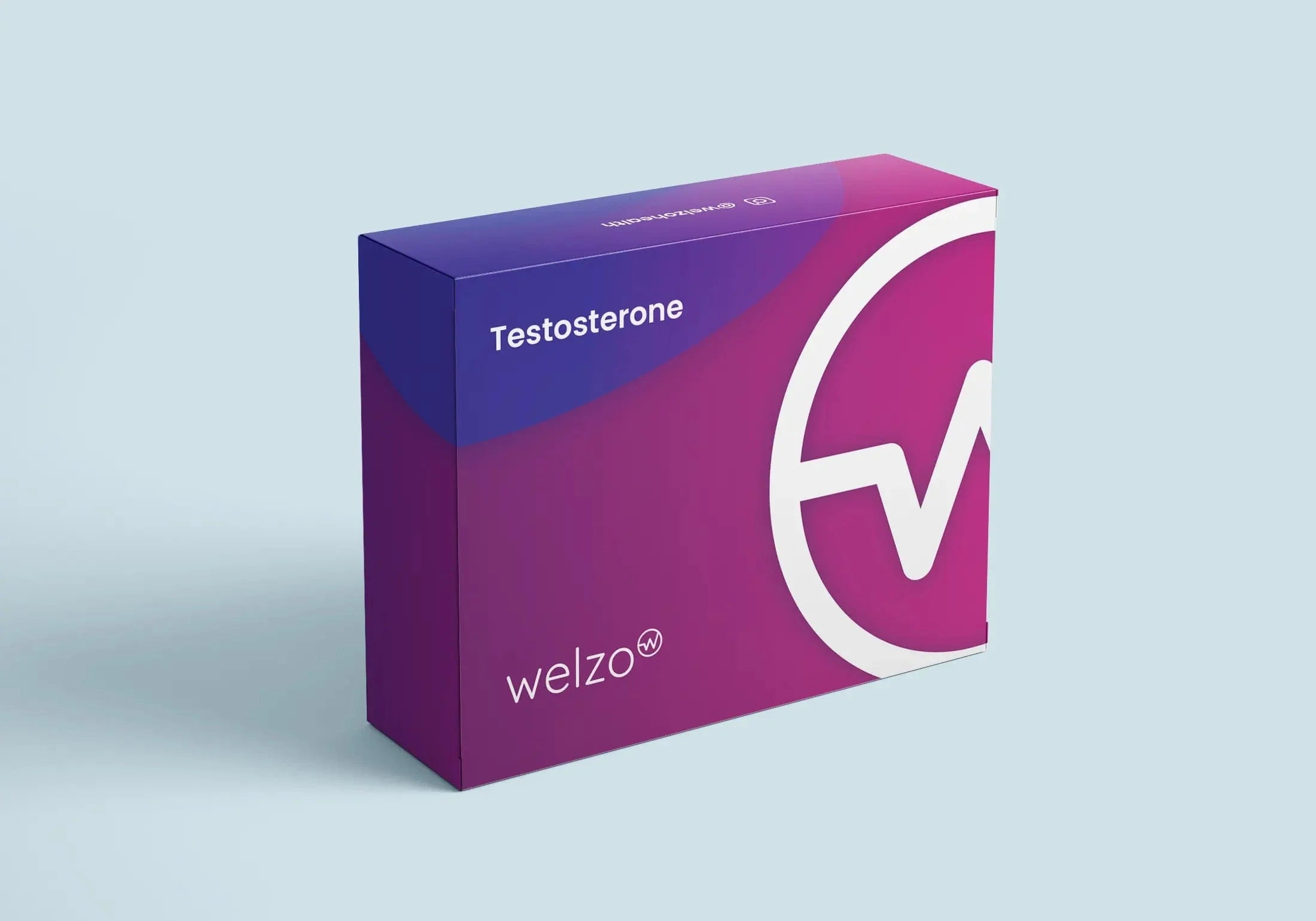Testosterone and Aggression and Mood: Whats the link?


Testosterone is a crucial steroid hormone, predominantly found in males, playing a pivotal role in the development of male reproductive tissues such as the testes and prostate. Moreover, it promotes secondary male characteristics like muscle mass, bone density, and body hair growth. Women also produce testosterone in smaller amounts, assisting in functions like bone density and ovary functions, says Dr. Sarah Williams from the University of London.
The brain is the starting point of testosterone production. Specifically, the hypothalamus releases a hormone signalling the pituitary gland. This gland, in turn, secretes another hormone that travels to the testes, stimulating testosterone production. In females, it's the ovaries that produce this hormone, albeit in smaller quantities, as detailed on the Endocrine Society website.
Testosterone levels aren't uniform and vary considerably across genders and ages. Males usually have levels ranging from 300 to 1,000 ng/dL. In contrast, females generally fall within the 15 to 70 ng/dL spectrum. As men age, particularly post the age of 30, testosterone levels tend to decrease, states Dr. Emily Peterson from Cambridge University.
Receptors for testosterone are scattered throughout the brain, notably in areas like the amygdala, hypothalamus, and prefrontal cortex. These regions are responsible for managing aggression, emotions, and sexual drive. Think of these receptors as locks and testosterone as their key, remarks Dr. Philip James, a leading neuroscientist from Oxford University.
Testosterone exerts its influence on various brain structures that modulate emotions and behaviours. The amygdala, responsible for emotion processing, can have its reactions, such as fear or anger, modulated by testosterone. Men with elevated testosterone levels were observed to have a heightened amygdala response to threat-related stimuli, as noted in the Brain Research Journal.
Deciphering the relationship between testosterone and mood, particularly aggression, isn't straightforward. Elevated testosterone can amplify certain emotional responses, yet it isn't an aggression trigger by default. Testosterone may intensify aggressive tendencies in those predisposed to such behaviours, but it's not the root cause, opines Dr. Linda Booth from the London Neuroscience Institute.

Buy Testosterone Blood test online here.
Animal models offer enlightening perspectives on testosterone's role in aggression. Studies on male rodents revealed that reduced testosterone levels, usually due to castration, led to decreased aggressive tendencies. But reintroducing testosterone reinstated these behaviours. Despite these observations, one must be cautious when drawing parallels between different species, warns Dr. Richard Thompson from Edinburgh's Animal Behaviour Institute.
Human subjects complicate the testosterone-aggression equation. Although some evidence suggests a link between high testosterone and increased aggression, the connection isn't definitive. There are numerous high testosterone individuals who aren't aggressive, indicating the role of other genetic and environmental factors, says Dr. Samantha Hughes from Manchester University.
The correlation between testosterone and aggression doesn't necessarily infer a causative relationship. A consistent association exists between elevated testosterone levels and heightened aggression in some scenarios. However, this doesn't confirm the hormone as the direct aggression inducer, as highlighted by a publication on the British Psychological Society website.
It's a common misconception that high testosterone levels are invariably linked to increased aggression. However, real-world cases contradict this stereotype. There are several documented instances of individuals exhibiting hyperaggressive tendencies while maintaining normal testosterone levels. "Although there's a prevailing belief associating testosterone with aggression, numerous cases exist where individuals show aggressive behaviours without elevated testosterone", states Dr. Amelia Wright, a behavioural psychologist from the University of Bristol.
While testosterone plays a part, it isn't the sole actor in the complex theatre of human behaviour. Other hormones, like cortisol, and neurotransmitters such as serotonin, can significantly influence aggression and temperamental variations. "To pin aggression solely on testosterone would be an oversimplification, as our hormonal and neurochemical systems work in a cohesive manner, orchestrating our behaviours," suggests Dr. Harriet Morgan from King’s College London.
Aggression can't be boiled down to just biology. Environmental stimuli and socio-cultural factors play a massive role in moulding aggressive behaviours. Exposure to violence, childhood traumas, societal norms, peer pressures, and upbringing can all amplify or mitigate aggressive tendencies. "Our surroundings, our upbringing, and the societal standards we're exposed to, all integrate with our biology to influence our aggression levels", says Dr. Sebastian Green, a sociologist from the University of Birmingham.
Beyond its reputed ties to aggression, testosterone can influence a spectrum of mood disorders. Lower testosterone levels have been observed in some men diagnosed with depression, and testosterone replacement therapy has occasionally been explored as a treatment modality. "Though not a standard treatment, some cases have witnessed alleviated depressive symptoms with testosterone therapy", notes Dr. Clara Robbins, a psychiatrist from Edinburgh.
Emerging research suggests that testosterone might possess protective properties against certain mood disorders, particularly in men. For example, optimal testosterone levels might shield against the severity of depressive episodes. "We're in the early days, but there's growing evidence that testosterone plays a more nuanced role in our moods than previously believed," states Dr. Nathan Lee from the University of Manchester.
Testosterone influences men and women differently, particularly concerning mood responses. Women, although they produce testosterone at lower levels, can be sensitive to its fluctuations. Periodic changes in testosterone, combined with other hormones like progesterone and oestrogen, can modulate mood variations. "Understanding the gender-specific impacts of testosterone on mood is crucial for creating tailored treatment strategies", highlights Dr. Isabelle Foster from Oxford.
Day-to-day testosterone levels can vary based on numerous factors. These short-term fluctuations might correlate with mood swings, especially if they are drastic. However, establishing a direct link requires comprehensive study. "While there's a theoretical connection between daily testosterone fluctuations and mood swings, substantial empirical evidence is still pending," remarks Dr. Jacob Ellis from Cambridge.
Everyday life events, from a tense meeting to an exhilarating workout, can impact testosterone levels. Chronic stress, for instance, may suppress testosterone production. "Our daily life, with its stresses and joys, plays a part in modulating our testosterone levels, which in turn might influence our mood responses", suggests Dr. Sophie Turner, a stress researcher from the University of London.
The question remains: do these testosterone shifts directly translate to mood variations? Some studies propose a link, especially when testosterone levels swing outside the 'normal' range. However, individual resilience, coping mechanisms, and other hormonal interplays can influence mood variability. "It's a mosaic of factors, and while testosterone is a piece of the puzzle, it isn't the sole determinant," says Dr. Eleanor Graham from the University of Glasgow.
A frequent query, the relationship between testosterone therapy and mood disorders is intricate. Some patients report mood enhancements post-therapy, while others experience mood deteriorations or heightened anxiety. "The response to testosterone therapy varies from one individual to another; hence, a thorough monitoring system is vital during treatment," advises Dr. Caroline Mitchell from Imperial College London.
Diet and exercise indisputably influence testosterone levels and, in turn, mood. A balanced diet and regular physical activity can boost testosterone levels, leading to enhanced mood and energy. On the flip side, sedentary lifestyles and unhealthy eating can suppress testosterone, remarks Dr. Paul Owens from Liverpool University.
Testosterone levels typically drop as men age. This natural decline might be linked to mood changes, including increased sadness or irritability. However, it's essential to distinguish between age-related hormonal changes and clinical mood disorders, says Dr. Lisa Robertson, a geriatric specialist from the University of Birmingham.
PCOS often correlates with elevated testosterone levels in women, potentially leading to symptoms like aggression and mood swings. The condition's hormonal imbalance can impact emotional well-being, highlights a study on the NHS website.
A trending topic, the influence of synthetic testosterone boosters on aggression, has mixed research outcomes. Some suggest a potential link, while others find no significant change in aggression levels, as documented on the WebMD website.
Postpartum hormonal shifts might affect mood, with some research hinting at a connection between diminished testosterone and postnatal mood disturbances. Further studies are needed, notes Dr. Hannah Mathews from King's College London.
Emerging evidence suggests that lower testosterone levels might be associated with heightened irritability in some individuals. However, it's not a ubiquitous reaction, remarks Dr. Neil Clarkson from the University of Sheffield.
Certain mood disorder medications might interact with testosterone, potentially altering its efficacy or causing side effects. Always consult a physician before combining therapies, advises the British Medical Journal.
Our genes can play a role in determining how testosterone affects our mood and aggression levels. Individuals may be genetically predisposed to react differently to the same testosterone levels, states Dr. Julia Turner from the Genetics Society UK.
Past traumatic experiences or underlying psychological disorders can magnify the effects of testosterone on mood or aggression. It acts as a background against which the hormone operates, says Dr. Angela Brown, a clinical psychologist from Cardiff University.
Stressful life events or chronic stress can interact with testosterone levels, potentially amplifying mood disturbances. It's a delicate interplay of biology and environment, notes Dr. Graham Philips from the University of Exeter.
Testosterone doesn't operate in isolation. Its effects on mood and aggression can be modulated by the balance or imbalance of other hormones in the body, says Dr. Irene Mills, an endocrinologist from the University of Manchester.
Including testosterone levels in psychological assessments can provide a more comprehensive picture of a patient's mental health, advises Dr. Omar Farouk from the British Psychological Society.
For individuals with clinically low testosterone leading to mood disturbances, replacement therapy could be beneficial. But it should be administered with caution and constant monitoring, remarks Dr. James Nolan from the University of Leeds.
Those with high testosterone levels might benefit from behavioural interventions, teaching them strategies to manage potential mood swings or aggressive tendencies, suggests Dr. Priya Joshi from the University of Edinburgh.










Plus get the inside scoop on our latest content and updates in our monthly newsletter.